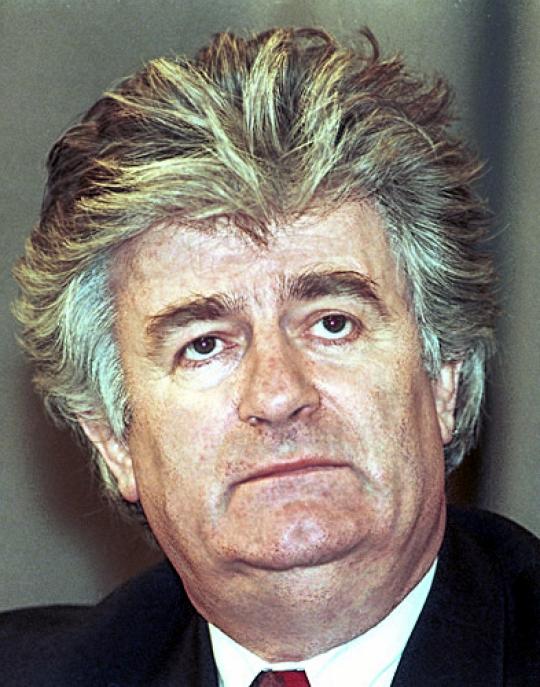21 July 2008: The arrest of Radovan Karadžić
On 21 July 2008, former Bosnian Serb politician Radovan Karadžić was arrested in Belgrade.

Radovan Karadžić © Mikhail Evstafiev
At the time of his capture, 13 years after his indictment, Karadžić was Europe’s most wanted fugitive. The arrest and conviction of the former Bosnian Serb leader stood as the strongest symbol of justice for those murdered at Srebrenica and all those persecuted during the genocide in Bosnia.
When Bosnia declared its independence from Serbia in 1992, Karadžić and his Serbian Democratic Party refused to recognise the new state and instead declared the breakaway Republika Srpska (Bosnian Serb Republic), part of a Greater Serbia. With support from Slobodan Milošević, Karadžić organised Serbs within Bosnia to attack the ethnic Bosnian and Croat populations. What followed was a brutal campaign of ethnic cleansing against non-Serb Bosnians.
Across the country, rape, torture and murder were used as weapons to destroy the non-Serb populations. As President of the Republika Srpska, Karadžić oversaw the implementation of these barbaric crimes. In Srebrenica, his aim to ‘terrorise and demoralise the Bosnian Muslim and Bosnian Croat population’ concluded with the systematic murder of over 8,000 males from age 13 upwards. Karadžić’s dismissal of this massacre as ‘false myths’ at his trial was denounced by relatives of those who were murdered at Srebrenica.
In March 2016, Karadžić was found guilty of the genocide in Srebrenica, crimes against humanity, terror, murder, unlawful attacks on civilians and the taking of hostages as violations of the laws and customs of war. Karadžić was sentenced to 40 years in prison.
On appeal in March 2019, his sentence was increased to life, and in May 2021, the UK government agreed for Radovan Karadžić to be transferred to a UK prison to serve the rest of his life sentence.


